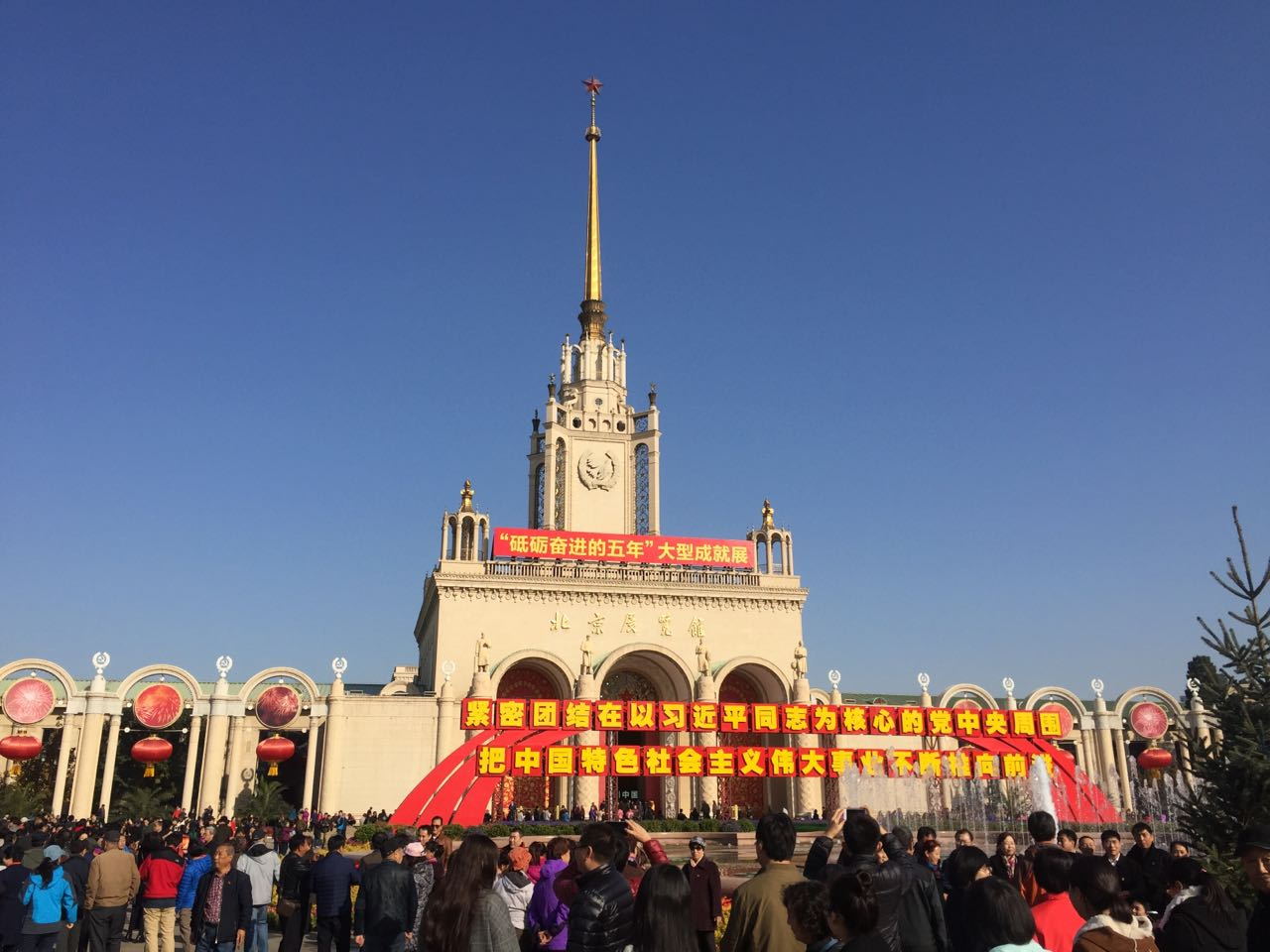By Veeresh Kanduri, Yenching Scholar on International Relations and Politics at Peking University
The question that pulled me towards the Himalayan neighbour, China, to pursue China Studies is - why has China, the world's most populous nation, been so successful at bringing more people out of poverty with an astonishing transformation in its economic and geopolitical status over the history of three decades than the other developing countries? After living in China for two years, I have become cognizant of the China’s development goals , but China's achievements in other areas have deeply fascinated me as well.
China's rapid development in the past five years has been impressive, but difficult to comprehend for academics. Accordingly, I was keen to explore non-conventional learning methods in the past two years. The Beijing Exhibition Center featuring China's outstanding achievements over the past five years offers visitors a glimpse of how China has developed under the leadership of President Xi Jinping.
 Beijing Exhibition Center
Beijing Exhibition Center
Of all the developments showcased at the Beijing Exhibition Center, the reforms and modernization of the People's Liberation Army (PLA) fascinated me the most. PLA Reforms have been the least highlighted in the media among the triumphs of President Xi, who also serves as chairman of the Communist Party of China (CPC) Central Military Commission. He was promoted to the apex leadership rank of the Communist Party of China (CPC), General Secretary, at the 18th Party Congress in late 2012. At the dusk of Xi's first term and at the dawn of his second term, at the Beijing Exhibition Center, I discerned the three principles of governance for a new era of PLA.
Xi initiated reforms that have delivered structural transformations with the advent of his position as Head of the CMC Central Leading Group for Deepening Reforms of National Defence, and the Military in 2014 and Commander in Chief of the Joint Operations Command Center of the PLA in 2016.
The three principles of governance for the Structural reforms of the PLA are:
Pragmatic efforts for 21st-century security demands, domestic and abroad in the interests of pursuing the Belt and Road Initiative. On Jan 11 2016, Xi had disbanded the 4 military headquarters (Staff, Politics, Logistics, Armaments) and their functions duties handed to 15 new agencies under the CMC to optimize the command chain.
Xi also restructured the PLA from Soviet-era command systems to model that resembles United States-based theater commands, which are more effective for 21st-century military operations. The Shenyang, Beijing, Jinan, Nanjing, Guangzhou, Chengdu and Lanzhou commands are discarded and the Eastern, Southern, Western, Northern and Central Theatre Command are established. The general commands of the PLA Army, Rocket Force and Strategic Support Force were formed.
Meritocratic recruitment and promotions to improve professional quality of PLA personnel. Xi recognizes the obligation of professional elites with a high degree of technical expertise and professional knowledge to lead a technologically superior PLA and to ensure competent governance within the PLA. Furthermore, to build technologically advanced PLA needs motivated, skilled professionals, to carry out a broader range of missions, including outside China. Xi endorsed the removal of unwanted personnel and enactment of policies to attract, retain, and cultivate desired professionals. The Congress will likely endorse Xi’s anti-corruption drive, his flagship mission of President Xi that paves a path to removing unpopular senior officers accused of serious corruption charges and the promotion of younger officers who better understand the goals of the military’s modernization efforts. Xi initiated direct efforts to strengthen and enforce institutions, rules and regulations that encourage and reward the development of skilled professionals needed to build a more professional, joint military.
Integrity to revamp the PLA. In November 2015, Xi had reinforced integrity in the PLA and said: "Decision-making, enforcement and supervision powers should be separated and distributed in a manner that ensures they serve as checks and balances on each other but also run in parallel." Xi's promise in 2012 to go after both 'tigers' and 'flies' in his crackdown on corruption revealed that some leaders systematically abused their positions to take bribes for senior-level promotions. Since Xi took office in 2012, more than 100 senior officials at the rank of major general or higher – including Xu Caihou and Guo Boxiong, the two former vice-chairmen of the CMC- were criminally convicted or punished. A total of 4,885 military officials were punished for disciplinary offenses in 2016.
Xi's three principles - Integrity, Meritocracy and Pragmatism - for key PLA reforms are in the very initial degrees of implementation and encountering resistance from entrenched interests, albeit the reforms are not less to revolution when compared with the glacial pace of change that normally occurs in the PLA. The fundamental objective of Xi is to make the PLA leaner, meaner, and cleaner to safeguard sovereignty and Chinese interests around the world to be prepared to fight and win high-technology wars on land, in the air, at sea, in outer space, as well as in the cyber and electromagnetic domains.
(The opinions expressed here do not necessarily reflect the opinions of Panview or CCTV.com. )

Panview offers a new window of understanding the world as well as China through the views, opinions, and analysis of experts. We also welcome outside submissions, so feel free to send in your own editorials to "globalopinion@vip.cntv.cn" for consideration.
















